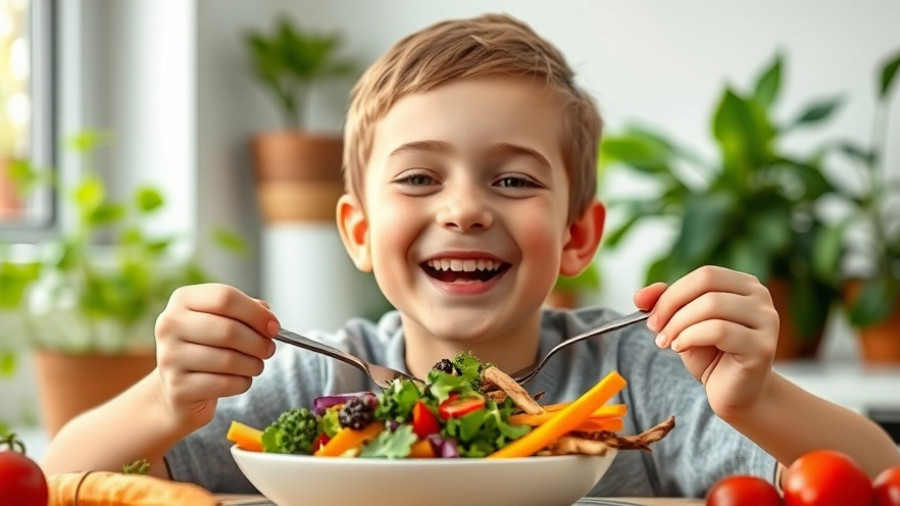
The Growing Trend of Veganism Among Children
Recently, there has been a remarkable shift towards plant-based diets, particularly among children and families. The growing number of kids embracing veganism reflects a broader awareness of health and environmental issues linked to factory farming. Children are not only better informed about the origins of their food but are also becoming more socially conscious. With support from pediatric organizations such as the Academy of Nutrition and Dietetics and the American Academy of Pediatrics, parents are increasingly encouraged to introduce well-planned vegetarian and vegan diets to their children.
Importance of Early Education on Food Choices
Teaching children about food not only involves what they eat but also the significance of making thoughtful choices. As kids transition from before-reading ages to becoming independent readers, their understanding of food labeling becomes crucial. They begin to ask questions about their meals, such as whether something has animal products in it. Encouraging children to read labels empowers them to recognize what they are consuming. Involve them in grocery shopping where they can actively participate in selecting fruits and vegetables, fostering a sense of autonomy while learning about healthy eating.
Encouraging Involvement in Food Preparation
A practical way to instill a love for healthy eating is by involving children in preparing vegan meals. This can range from growing herbs at home to creating fun dishes that reflect their tastes. For instance, making pizza or tacos allows them the freedom to choose toppings and savor the process of cooking. Providing them with the opportunity to help out in the kitchen makes them more inclined to try new ingredients. Recipes that mimic their favorite comfort foods, such as vegan mac and cheese or lentil tacos, can be introduced, making the transition enjoyable.
Tackling Social Situations: Birthday Parties and School Events
One challenge many vegan families face is navigating social situations, such as birthday parties where non-vegan treats are in abundance. Preparing children for these scenarios is essential; bringing their own fun snacks or treats can reduce feelings of exclusion. For example, if they see their friends indulging in pizza, having a ready-made substitute can make all the difference in maintaining their enthusiasm for the lifestyle. Keeping their spirits high by promising a special treat at home can also make them feel more understood.
Building a Positive Foundation for Future Food Choices
The ultimate goal is to cultivate a positive relationship with food in children. Emphasizing enjoyment rather than restriction allows kids to develop their tastes without the negative associations that often accompany dietary changes. Parents can also model healthy choices themselves, showing enthusiastic participation in plant-based meals. This connection reinforces the understanding that eating well is not just about nutrition but about enjoying the journey together as a family.
Conclusion: The Future of Veganism in Nutrition Education
The movement towards veganism represents not just a dietary choice but an opportunity for families to bond over shared values of health and compassion. As more kids embrace a vegan lifestyle, it becomes vital that parents support their journeys by providing education, encouragement, and engaging experiences. In this evolving landscape, nurturing the next generation to appreciate plant-based nutrition is not merely about sustenance but fostering responsible, caring individuals.
 Add Row
Add Row  Add
Add 




Write A Comment